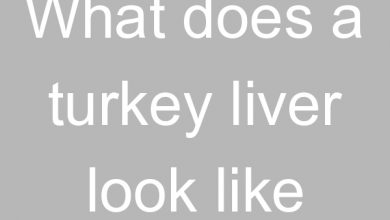How to Treat Chinch Bugs Without Chemicals

How do you control chinch bugs without pesticides?
How to Stop Further Chinch Bug Infestations
- Mow lawns at the recommended maximum height. …
- Improve soil conditions by top-dressing with organic matter such as compost or well-aged animal manure.
- Keep lawns well watered, especially during hot summer months and use slow-release organic fertilizers.
What is the best way to get rid of chinch bugs?
Can grass recover from chinch bugs?
Plant damage results not only from withdrawal of sap, but from chinch bug saliva, which contain substances toxic to the plant. Drought or heat stress may cause similar browning of turf, but proper watering will quickly rejuvenate the lawn. Turf injured by chinch bugs will not recover as quickly.
What time of year is best to treat chinch bugs?
Look for chinch bugs before the hot, dry weather occurs in August. You can see them most easily on days warmer than 20°C when they are most active. Try parting the grass and looking at the base of the grass plants.
What is a natural remedy for chinch bugs?
To treat chinch bugs without chemicals, start by raking your lawn, then vacuuming it to try and catch the infestation before it spreads. Alternatively, spray your lawn with a mixture of 2 ½ tablespoons of mild dish soap for every gallon of water on a cool morning or evening to minimize any damage to your plants.
How do you get rid of chinch bugs with dish soap?
If you are looking for an easy chemical control of chinch bugs, apply 2 tablespoons of dish soap to 2 gallons of water and with a sprinkler drench the infested area. If the infestation is large, attaching a hose bottle with dish soap in it and water area is just as effective.
What time of year do chinch bugs come out?
spring
Depending on the area you’re located in and the type of climate your area has, chinch bugs begin to become active in the early spring, but they are the most active and destructive during late June–September when weather is warmest. Most people start to see visible damage around the beginning of August.
Should I cut my grass before spraying for bugs?
You should cut your grass before spraying for bugs because it helps most of the insecticide get to the stems where the insects are hiding. It also prevents the bugs from having shelter from the insecticide. Spraying after you mow is a better alternative for pollinating insects, too.
How do you get rid of chinch bugs in St Augustine grass?
Watering the lawn before application can help the pesticide penetrate the turf, but irrigation is not recommended following application of liquid insecticides. Use spot treatments where chinch bugs are restricted to isolated areas of the lawn. Treat the off-color turf and all surrounding infested areas.
How did my lawn get chinch bugs?
Too much nitrogen can increase chinch bug infestation and can cause other, larger problems such as fertilizer runoff. The best long-term approach to a healthy lawn (and trees and shrubs) is by maintaining healthy soil, regular irrigation, and proper mowing.
Can chinch bugs survive winter?
Chinch Bugs survive the winter as adults seeking shelter from the cold and snow under shrubs, hedges and leaf litter.
How do I grow grass after chinch bugs?
How often do you spray for chinch bugs?
every two months
PREVENTING CHINCH BUGS IN YOUR LAWN When grass starts to turn green in the spring, apply Amdro Quick Kill Lawn Insect Killer Granules every two months. Use a push or handheld spreader at a rate of 1.2 pounds per 500 square feet, and then water lightly.
How long are chinch bugs active?
Life Cycle/Reproduction. In May and June, adult chinch bugs lay eggs, which hatch within three weeks into wingless red nymphs about half the size of a pinhead. Nymphs slowly darken in colour and grow wings as they mature. Adults live an average of 50 days.
Does GrubEx work for chinch bugs?
For homeowners, look for GrubEx, Season-Long Grub Control, Grub & Lawn Insect Control, or Grub Stop Once & Done. These products contain the same active ingredients listed above for chinch bugs. Granular insecticides are recommended for low maintenance turf where irrigation is not feasible.
Does homemade insecticidal soap work?
Insecticidal soap kill harmful insects like mites, aphids, thrips, white flies and immature leafhoppers. The fatty acids in the soap dissolve the insects’ exoskeleton, causing them to dehydrate. Many gardeners turn to this foamy remedy not only because it’s effective, but also because it is more eco-friendly.
How can you tell the difference between a chinch bug and a brown patch?
1-The main difference, at least to the naked eye, is the uniformity of the circumference of a brown spot caused by lawn fungus, you will find the brown spot expanding in a uniform circle. Chinch bug brown spots are not as uniform due to the spread of the bugs in different directions.
What animals eat chinch bugs?
Biological control of chinch bugs: Natural enemies such as ants, big eyed bugs (Geocoris uliginosus), earwigs, ground beetles (see photo below), spiders, red imported fire ants (Solenopsis invicta) and wasps (Eumicrosoma benefica) help to suppress the populations of chinch bugs.
Maybe you are interested in:
How to Remove White Grubs from Lawns
Related searches
- how to get rid of chinch bugs in the house
- false chinch bugs in house
- is eliminator flea and tick granules safe for pets
- organic chinch bug control
- planet natural safer soap
- does soapy water kill ladybugs
- organic ant granules



